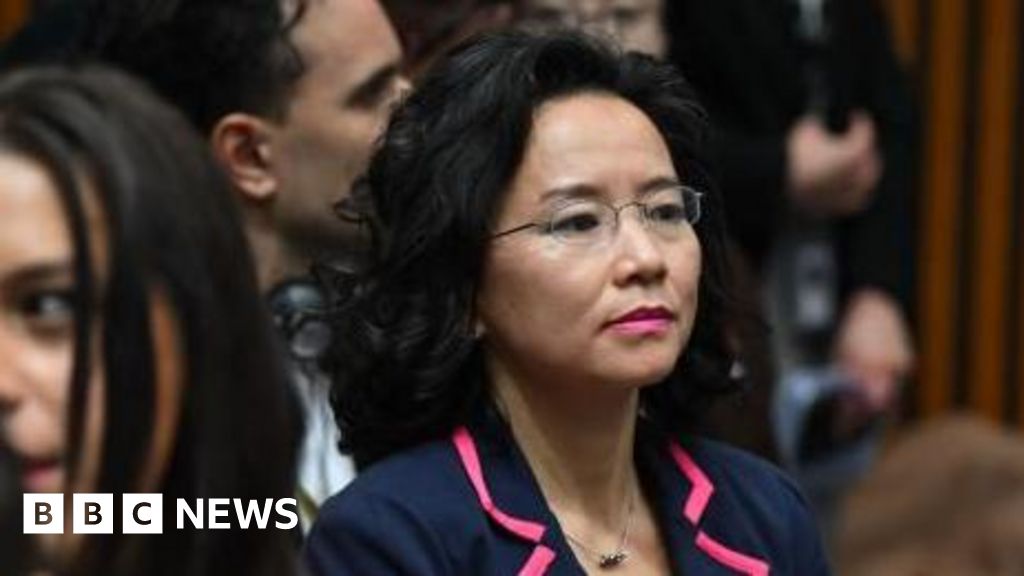Chinese officials appeared to prevent a formerly imprisoned journalist from appearing on camera at an event in Canberra between Chinese Prime Minister Li Qiang and Australian Prime Minister Anthony Albanese.
Cheng Lei, who was imprisoned by Beijing for three years, later said she believed two embassy officials stood in front of her to prevent her from “saying” or “doing something they considered “unsightly.”
Li Keqiang’s visit, the first by a Chinese premier since 2017, is seen as another step in easing tensions between the two countries after a series of disputes.
Both he and Mr. Albanese said bilateral discussions so far had been constructive.
Asked if he had seen Ms Cheng being blocked on Monday, Albanese said he was “not aware” there was a problem but “it’s important that people are fully engaged”.
“That’s what should happen in this building and elsewhere in Australia,” he added.
Ms Cheng, now a reporter for Sky News Australia, said she was sitting in an area designated for media representatives when two officers “tried their best to stop my camera and surrounded me from the side”.
Australian officials then tried to intervene, while Ms Zheng took photos of the incident on her mobile phone, the video shows.
The 49-year-old was arrested in August 2020 and accused of “illegally providing state secrets abroad” while working as a business reporter for China’s official English-language television station CGTN.
She was tried in secret and the charges against her were never made public before she was unexpectedly released last October.
Her arrest, along with that of fellow Australian and pro-democracy blogger Yang Hengjun, who remains imprisoned, has strained relations between Beijing and Canberra.
Albanese vowed to improve relations when he took office in 2022, ending a diplomatic hiatus caused by several troublesome incidents during the pandemic. These include repeated accusations of foreign interference and Chinese sanctions on a range of Australian goods.
On Monday, Li Keqiang said he hoped to help build “a more mature, stable and productive comprehensive strategic partnership.”
Albanese said the two had made progress on key issues such as “improving military communications to avoid incidents.”
Several other cooperation documents related to business, education and climate change were also signed.
China will now include Australia in a visa-free scheme to increase trade and tourism between the two countries.
Last year, Mr Albanese became the first Australian leader to visit China since 2016, praising “significant progress” in relations between the two countries after talks with President Xi Jinping.

